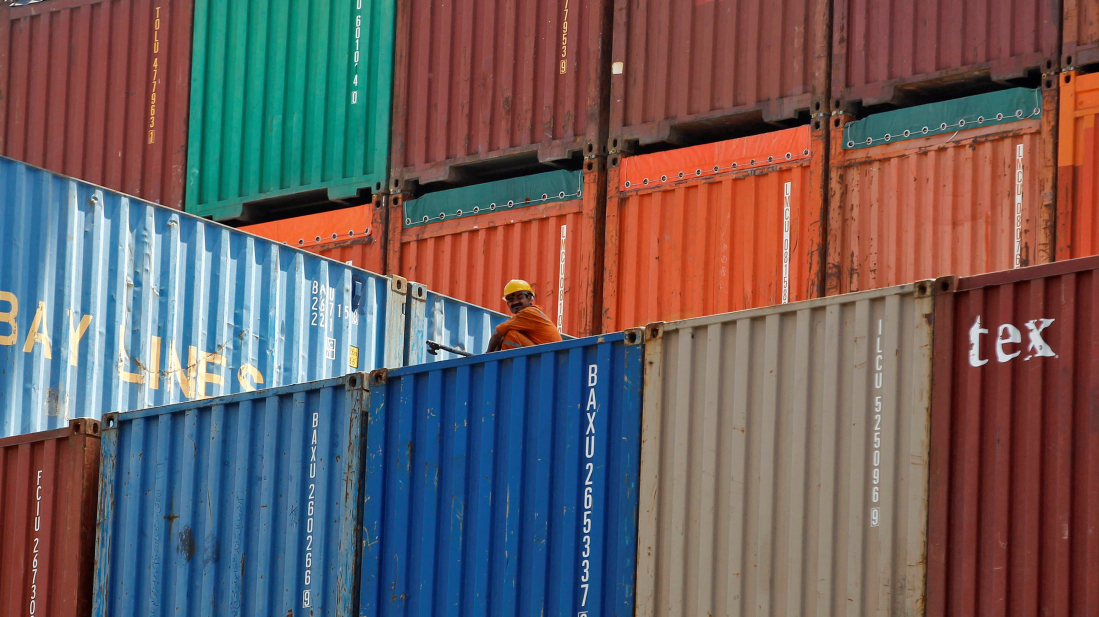Pentagon threatens to label Anthropic ‘supply chain risk’ over AI limits
The Pentagon has threatened to designate artificial intelligence firm Anthropic as a “supply chain risk” amid a dispute over the military use of i...

U.S.-India trade relations plunged into crisis on Wednesday after President Donald Trump issued an executive order imposing an additional 25% tariff on Indian goods, citing India's continued reliance on Russian oil.
The decision follows the collapse of trade negotiations and marks the most significant downturn in bilateral ties since Trump resumed office in January.
The order, which raises tariffs on some Indian products to as much as 50%, will take effect 21 days after 7 August. Key Indian export sectors such as textiles, footwear, and gems and jewellery are expected to be hit hardest.
In a sharp rebuke, India’s Ministry of External Affairs called the move “extremely unfortunate” and said, “India will take all actions necessary to protect its national interests.” It added that the country’s oil imports are based on energy security considerations and market dynamics, not politics.
The timing of the U.S. decision coincides with Indian Prime Minister Narendra Modi’s planned visit to China, his first in more than seven years, prompting speculation about shifting strategic alignments.
Madhavi Arora, an economist at Emkay Global, warned that the new levies would “practically kill trade between the two nations”. Another economist, Garima Kapoor from Elara Securities, noted that the tariff shock could pressure the Indian rupee and spur new calls for fiscal relief.
India imported a record $52 billion of Russian oil in 2024, according to government data. The White House did not comment on whether China, another major Russian oil buyer, might face similar penalties. However, U.S. Treasury Secretary Scott Bessent recently told Chinese officials that failing to curb such purchases could trigger new tariffs under pending legislation.
A senior Indian government official said the steep tariff rate and sudden nature of the move caught New Delhi off guard, even as it remained engaged in trade discussions with Washington. There are now behind-the-scenes efforts to negotiate a compromise that could involve a gradual cut in Russian oil imports in exchange for tariff relief.
The trade fallout adds further strain ahead of the 12 August expiry of the U.S.-China tariff truce, after which both sides are expected to reintroduce triple-digit duties on a wide range of goods.
U.S. Ambassador to NATO Matthew Whitaker said China has the power to bring an end to Russia’s war in Ukraine, arguing that Beijing is enabling Moscow’s military campaign.
Austria’s Janine Flock won the gold medal in the women’s skeleton event at the Milano-Cortina 2026 Winter Olympics on Saturday.
Iran’s Supreme National Security Council Secretary Ali Larijani said the United States could evaluate its own interests separately from those of Israel in ongoing negotiations between Tehran and Washington.
U.S. Secretary of State Marco Rubio on Sunday (15 February) called it “troubling” a report by five European allies blaming Russia for killing late Kremlin critic Alexei Navalny using a toxin from poison dart frogs.
Israel’s National Guard is preparing to deploy drones capable of firing tear gas at Palestinians in the occupied West Bank, including East Jerusalem, as part of security preparations ahead of the Muslim holy month of Ramadan, Israeli Channel 12 reported on Saturday.
The Pentagon has threatened to designate artificial intelligence firm Anthropic as a “supply chain risk” amid a dispute over the military use of its Claude AI model, according to a report published Monday.
Representatives of Ukraine, Russia and the United States are set to meet in Geneva for a third round of trilateral negotiations aimed at ending the nearly four-year war, even as both sides intensify military pressure on the ground.
The Prime Minister, Mark Carney, announced on 16 February that the Honourable Janice Charette has been appointed as the next Chief Trade Negotiator to the United States.
Cuba’s fuel crisis has turned into a waste crisis, with garbage piling up on most street corners in Havana as many collection trucks lack enough petrol to operate.
Day 10 of the Milano Cortina 2026 Winter Olympics delivered high-stakes semifinals, dramatic finishes and classic podium moments across Milan and the Italian Alps. Photographers captured split seconds of symmetry before puck drops, explosive turns on the ice and triumphant celebrations.
You can download the AnewZ application from Play Store and the App Store.

What is your opinion on this topic?
Leave the first comment